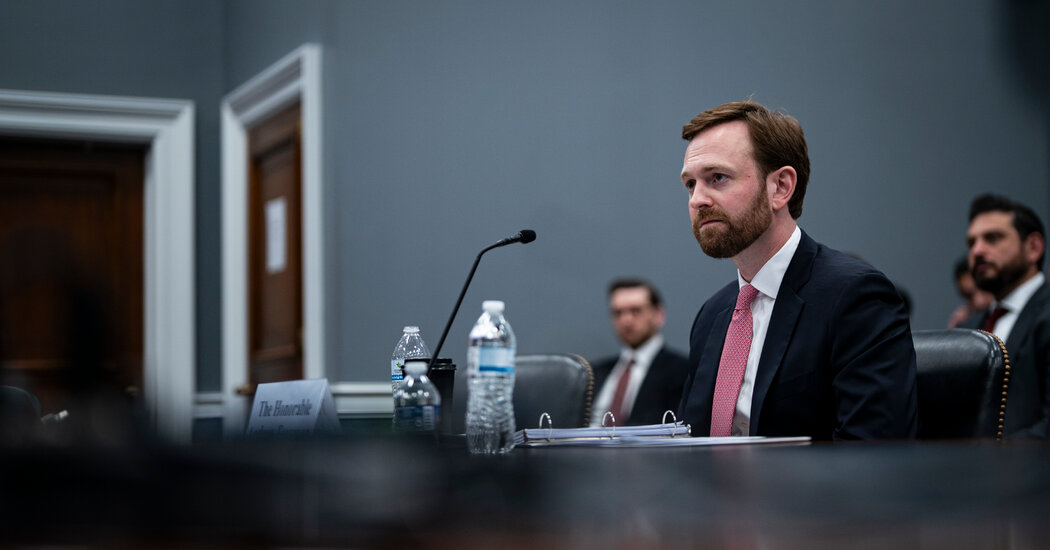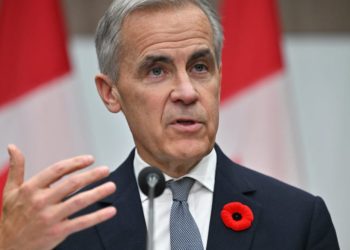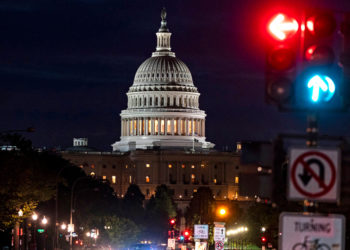As the Trump administration considers approving a proposed merger between two of the world’s largest advertising agencies, Omnicom Group and Interpublic Group, regulators may impose unusual conditions.
A proposed consent decree would prevent the merged company from boycotting platforms because of their political content by refusing to place their clients’ advertisements on them, according to two people briefed on the matter.
The restrictions being discussed by the Federal Trade Commission as part of its merger review are part of an effort by the Trump administration to use federal agencies to root out what it considers political bias in corporate America against conservative voices and causes.
The two people, who requested anonymity because the talks are confidential, said that the terms of the merger review between the F.T.C. and the two advertising companies were not finalized and could change.
A spokesman for the F.T.C. declined to comment. Spokeswomen for Omnicom and Interpublic did not have an immediate comment.
Omnicom and Interpublic announced their plans to combine in December, setting them up to create an advertising goliath that would generate around $25 billion in annual revenue. Analysts quickly questioned whether antitrust enforcers would approve the deal because it brings together two of the largest advertising agencies.
Last month, the F.T.C. opened an investigation into whether some advertisers and watchdog groups banded together to withhold advertising dollars from online platforms and websites with conservative bents.
Andrew Ferguson, the F.T.C.’s chairman, has said the spending pullbacks amount to illegal boycotts. Advertisers say they should have the freedom to spend their money as they wish.
Some advertisers and brands have not wanted to be associated with social networks that can be a breeding ground for violent, inaccurate and politically divisive content. Because of that, advertising firms sometimes withhold portions of their budgets from these platforms out of concern for what the industry calls brand safety, protecting their clients’ reputations.
Omnicom participated in an advertising initiative, announced in 2019, called the Global Alliance for Responsible Media. The alliance pushed social platforms to adopt stricter content moderation policies. After Elon Musk’s acquisition of the social media company X, the group recommended that advertisers pause their spending on X and several major companies did so. Mr. Musk sued the group for anticompetitive behavior, and it soon shut down, saying it did not have enough cash to operate and fight the lawsuit. The group denied wrongdoing.
Shortly after Omnicom announced its plans to acquire Interpublic, Representative Jim Jordan, a Republican of Ohio who chairs the Judiciary Committee, announced an investigation into the deal, citing Omnicom’s involvement with the Global Alliance for Responsible Media.
The F.T.C.’s recent moves involving the advertising industry “point to a much more highly politicized environment for agencies than we have ever seen before, at least in the United States,” wrote Brian Wieser, an analyst, on Tuesday in the midyear industry update from his Madison and Wall consulting firm.
The talks occur on the eve of the Cannes Lions Festival of Creativity, the zenith of the ad industry’s annual calendar, where executives strike deals on yachts over glasses of rosé. It is likely to send a message to the gathered agencies, who have faced pressure not to withhold their advertising dollars from tech platforms like X or face reprisal from conservative leaders who accuse them of suppressing free speech.
Regulators under President Trump have incorporated some unusual considerations into merger reviews, including company policies and programs involving speech and diversity, equity and inclusion. The Federal Communications Commission Chair Brendan Carr, for example, has indicated he might block deals involving companies with D.E.I. programs.
In May, Verizon’s chief executive sent a letter to Mr. Carr saying the company was ending D.E.I.-related policies. The following day, the F.C.C. approved its deal with Frontier.
Omnicom’s deal with Interpublic has also faced scrutiny from Democrats. In March, a group of Senators including Elizabeth Warren of Massachusetts and Cory Booker of New Jersey, wrote to the F.T.C. and the Justice Department’s antitrust division asking for an independent evaluation of the deal, saying that X could be “attempting to strike a quid-pro-quo deal” for approval of the deal in exchange for advertising dollars.
Mr. Musk left his influential government role last month.
Shareholders in Omnicom and Interpublic approved the deal in March. In April, executives told investors it remains “on track” to close the deal later this year, as it awaits regulatory approvals.
Lauren Hirsch is a Times reporter who covers deals and dealmakers in Wall Street and Washington.
Benjamin Mullin reports for The Times on the major companies behind news and entertainment. Contact him securely on Signal at +1 530-961-3223 or at [email protected].
Kate Conger is a technology reporter based in San Francisco. She can be reached at [email protected].
Tiffany Hsu reports on the information ecosystem, including foreign influence, political speech and disinformation
The post F.T.C. May Hit a Mega Ad Merger With an Unusual Rule: No Boycotting appeared first on New York Times.



